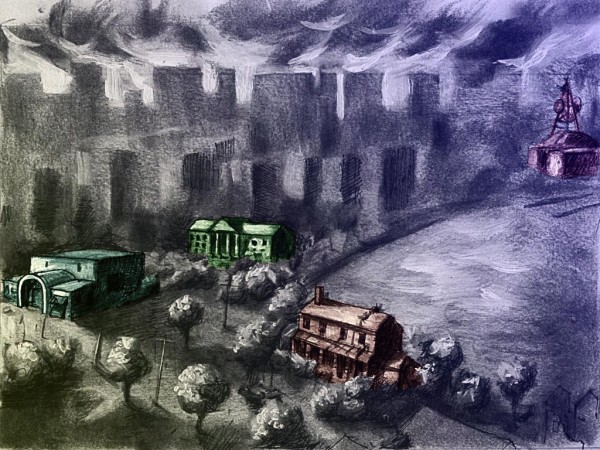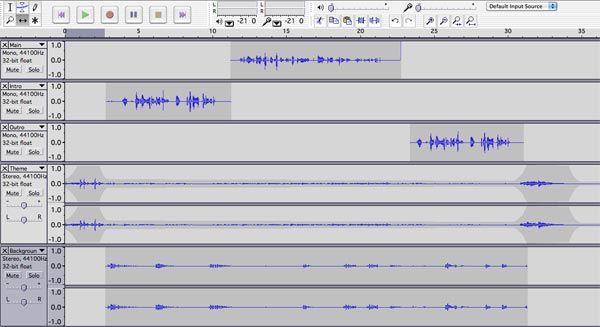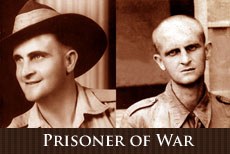Digital Storytelling for Educators
The aim of this workshop is to demonstrate the importance and relevance of storytelling in the twenty-first century as demonstrated by the research of individuals such as Donald Norman, Mark Turner and Daniel Pink. Memory is preserved and the dissemination of information enriched through the application of storytelling.

The Atlantis space shuttle transits the sun
[This work has been released into the public domain by its author, Thierry Legault.]
Storytelling is undergoing a renaissance globally as thought leaders and corporate entities realise that communication and creativity both in education and the workplace relies on more than just the transmission of information. Storytelling lends itself to teaching languages, social sciences and the arts. Yet, in fields such as business, marketing, engineering and science the art of storytelling can be utilised to inspire, promote an idea and emphasise the human element of a subject.
Storytelling can enable educators to capture the processes, impact and anecdotal highlights of the content that they teach and share with their students. Storytelling can give life to a presentation and a lecture. Storytelling can be utilised to add the human element to a dataset and a report.

Storytelling can gain the attention of the audience and inspire others to share their stories. Storytelling, for example, can be utilised to assess a student’s conceptual understanding of a topic or relevant issue in a particular context. Storytelling is useful in determining the attitudinal and empathetic skills of a student.
Participants will be guided through the use of a range of digital media that can be employed to inspire the individual and enrich the imagination and so set the stage for the telling and re-telling of stories via a digital medium. The participants will employ a hands-on approach during the day and work with a variety of online tools and desktop applications including Comic Life, Picasa, Audacity and VoiceThread.
 Duration
Duration
8 hours.
Learning Outcomes for Participants
At the end of the course, participants will be able to develop the skills and techniques required to:
- Appreciate the art, benefits and techniques of storytelling in teaching and learning
- Identify and apply digital media such as images, text, audio and video to inspire individuals and to form the basis of a digital storytelling activity
- Determine the appropriate media types suitable for the creation and conveying of your story (text, image, audio, video, mixed)
- Create, edit and publish stories using a variety of client software based and Internet based technologies
- Integrate digital storytelling strategies effectively into a curriculum

Audacity sound editing software
Target Audience
- Teachers (Primary, Secondary and Colleges)
- Academic Staff (ITE, Polytechnic, University and Training Institutes)
Pre-requisites
- It is recommended that participants bring a thumb drive or USB Flash drive so that they can take electronic copies of resources provided during the course
- Participants are also advised to have a range of images available for processing to be uploaded to their Picasa or Voicethread web sites
- Finally, participants are advised to consult the relevant resources and links available at the following web site prior to the course http://www.larkin.net.au/
Activities
During the course:
- The workshop will commence with a presentation that sets out the concepts of and the research associated with storytelling in the workplace, education and the broader community.
- The process and methods of digital storytelling will be shared with the participants.
- Online resources will also be shared with the participants.
- The presenter will share examples illustrating the manner in which storytelling can be inspired and initiated as well as examples of digital storytelling in use elsewhere.
- During the hands-on component of the day the instructor will provide brief presentations and instructions relevant to the desired learning outcomes followed by participant use of the applications and tools including Comic Life, Audacity and Flickr.
- The participants will work both individually and in small groups to develop their skills in using the applications referred to in the learning outcomes above.
- The participants will use the hands-one activities to explore the possibilities afforded by different Web 2.0 tools in creating digital stories and create their own digital storytelling example.
- Group sharing sessions will be conducted to enable individual participants to share with others how they may deploy digital storytelling in their organisation or classroom setting.
- Groups will also form to design, plan and write sample units of work or lesson plans that deploy digital storytelling, using the curriculum programming templates provided by the facilitator.
- Help and feedback will be available through course notes and assistance from the facilitator.
Voicethread Example
- Please explore this Voicethread below and add a comment if you wish.
Software web sites and downloads
Guides and resources
- Comic Life 1.0 guide
- Comic Life 2.0
- Edublogs Guide
- Comic Life Ideas
- Voicethread guide
- Audacity guide
- Audacity hints
Five minutes full throttle
Digital storytelling resources
- Alan Levine: 50 Ways To Tell A Story and the updated 50+ Web 2.0 Ways To Tell A Story and the Story-tools
- Alan Levine: Compelling Storytelling
- Alan Levine: Explorations in Storytelling
- Miguel Guhlin: Digital Storytelling Workshop
- Storytelling’s Impact on Empathy (and the Architecture of the Brain) & the TED Talk by Paul Zak
- Web 2.0 Storytelling: Share Some Examples
- Digital Storytelling Toolkit by the Llano Grande Center
- Delaware Art Museum: The Art of Storytelling
- University of Houston: The Educational Uses of Digital Storytelling
- Center for Digital Storytelling
- MIT Media Lab: Center for Future Storytelling
- Stories for Change
- Digital Storytelling Resources
- Digital Storytelling +
- Microsoft: Digital Storytelling in the Classroom
- The Elements of Digital Storytelling
- Meg’s Digital Storytelling Resources
- Digital Storytelling Using Technology to Tell Stories
- NSW Country Area Programme ~ Digital Storytelling
- Digital Storytelling
- Australia Centre for the Moving Image
- Queensland University of Technology ~ Digital Storytelling
- Digi Tales ~ The art of telling digital stories
- Art, Storytelling, Technology and Education
- Digital Storytelling for Educators
- Digital Storytelling Guides for Educators by Silvia Rosenthal Tolisano
- 50 Sites & Apps for Digital Storytelling
Educators write about digital storytelling
- M. Kearney: Towards a learning design for student-generated digital storytelling ~ Download PDF
- Deepening our Learning Through Storytelling: creativity, STEM and stories
- Bryan Alexander and Alan Levine: Web 2.0 Storytelling: Emergence of a New Genre ~ Educause PDF
- Miguel Guhlin: Place Based Storytelling
- Miguel Guhlin: Digital Storytelling with Web Based Tools
- Jim Groom: Bava Tuesdays: Digital Storytelling: Week 1
- Jim Groom: Bava Tuesdays: Digital Storytelling: Week 2
- Jim Groom: Bava Tuesdays: Digital Storytelling: Week 3
- Jim Groom: Bava Tuesdays: Digital Storytelling: Week 4
- Mathew Needleman: Digital Storytelling Blog Carnival #1
- Mathew Needleman: Digital Storytelling Blog Carnival #2
- Instructify: Pixton: Digital Storytelling, Comics-style
- Kevin’s Meandering Mind: Keeping the Mood Light: digital storytelling and Boolean
- Kevin’s Meandering Mind: Tapping into a network for ideas: digital story tutorials
- Kevin’s Meandering Mind: Moving Students to Think with Writing
- Implementation of digital storytelling in the classroom by teachers trained in a digital storytelling workshop
- The World of Digital Storytelling
- 5 Ways To Enhance Instruction with Digital Narratives
- Digital Storytelling Finds Its Place in the Classroom
- Eight Tips for Telling Your Story Digitally
- The World of Digital Storytelling By Corey Hitchcock
- Mark Woolley: Literacy Alive – Digital story telling for 21st century learners
- Maish R Nichani: Singapore Armed Forces and the strategy of 2-5-1 Storytelling
- Danielle Maestretti: The Art Of Digital Storytelling
- Larry Ferlazzo: Story Something
- MIT Media Lab creates Center for Future Storytelling
- Digital Storytelling: Exploring a New Literacy for rural schools in Bhutan
- Digital and Collaborative Storytelling in the Classroom
- Capture Wales
Voicethread
- Voicethread
- What is a Voicethread?
- Getting started with Voicethread in the Classroom
- Voicethread K-12 Solutions
- Voicethread blog
- Voicethread Digital Library
- Voicethread for Educators Group
- Voicethread Educator’s Guide
- Educause: 7 Things you should know about Voicethread ~ PDF
- Wes Fryer: Five options for commenting on a Voicethread Digital Story
- Digitally Speaking: Using Voicethread for Digital Conversations
- Educational Origami ~ Voicethread Tutorial
- John Larkin: Voicethread Guide








Digital Story Telling | ICT Practice
Mar 28, 2011 @ 00:27:45
[…] John Larkin. (2011). Digital Storytelling. Retrieves March 26, 2011 from http://www.larkin.net.au/blog/2011/1/30/digital-storytelling/ […]
May 09, 2013 @ 09:42:14
Looks like a great resource.. look forward to reading it in more detail. Bernadette